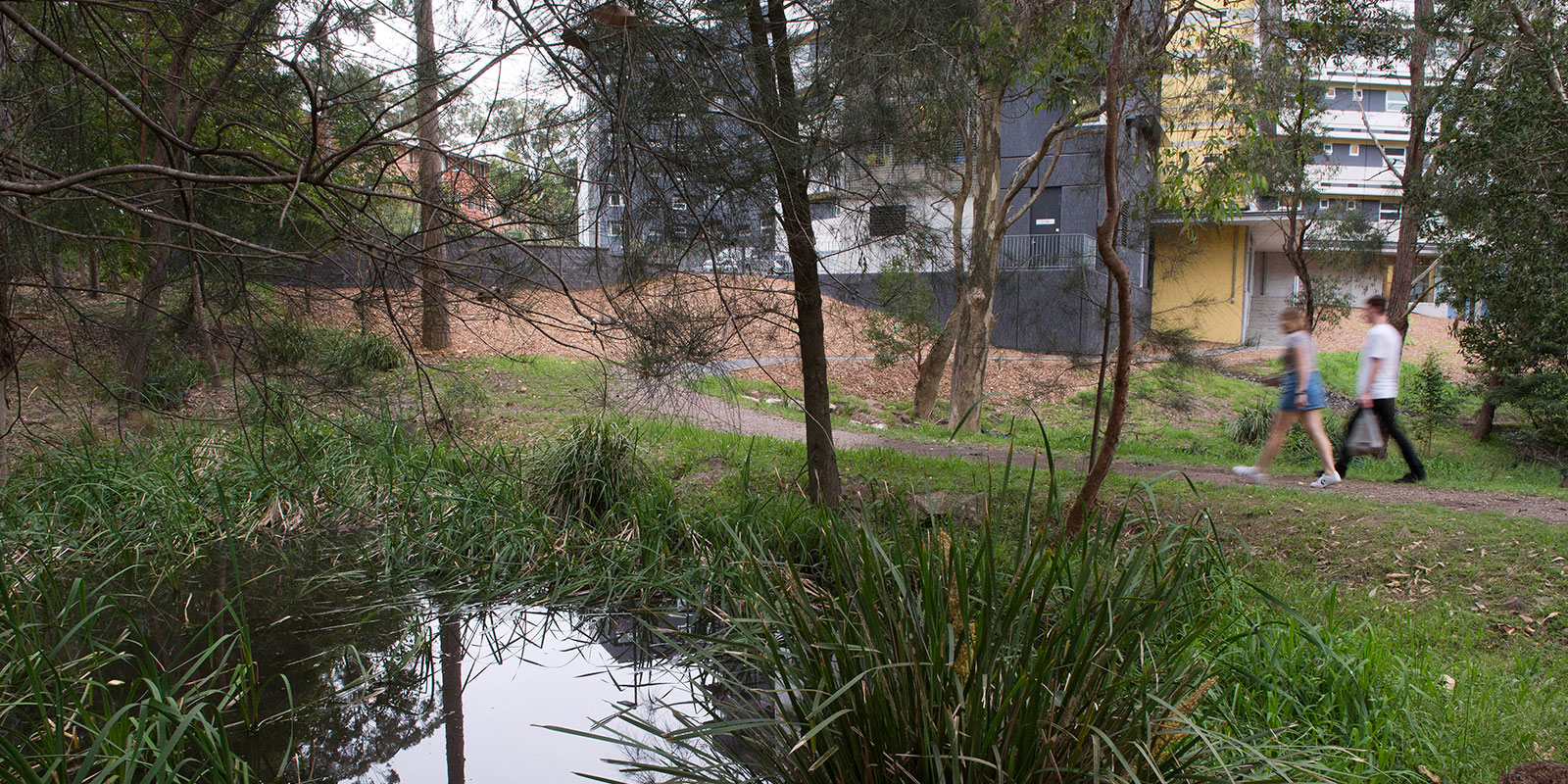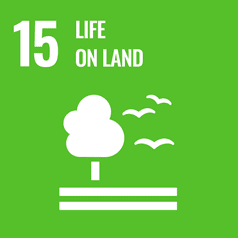

Goal 15:
Life on Land
Collaboration for Shared Land Ecosystems
The University of Newcastle actively collaborates with local and regional communities through long‑term partnerships that help conserve, restore, and sustainably manage shared ecosystems, especially mangrove, wetland and coastal vegetation.
Recent Collaboration
Here are specifics on what the University is doing with communities to maintain shared land ecosystems:
- Ecological Restoration of Degraded Peatlands in Indonesia
Associate Professor Charles CC Lee, Director of the Centre for Sustainable Development, University of Newcastle Singapore Campus, has worked on several collaborations towards SDG projects.- Ecological Restoration of Peatlands in Indonesia: Achieving the UN SDG Goals.
A 2024 active CSD project based in Sungei Tohor, Sumatra, Indonesia. In collaboration with 2 NGOs, People’s Movement to Stop Haze (PM Haze) – Singapore, and Ekonomi Kreatif Andalan (EKA, Indonesia). - Mangrove Ecosystem Restoration To Protect The Endangered Proboscis Monkey in South Kalimantan, Indonesia.
In 2023, this was a collaboration with Universitas Lambung Mangkurat (Banjarmasin, Indonesia), Sahabat Bekantan Indonesia (NGO – Friends of the Proboscis Monkey, Indonesia), School of Environmental and Life Sciences (UON, Newcastle, Australia).
- Ecological Restoration of Peatlands in Indonesia: Achieving the UN SDG Goals.
- Moata’a Living Lab, Samoa / Mangrove Ecosystem Partnership
The University of Newcastle entered into an MOU with the village of Moata’a. Through the Moata’a Living Lab project, UoN works closely with the village, SPREP, Samoa’s Ministry of Natural Resources and Environment, and the National University of Samoa. Activities include ecosystem analysis, cultural & livelihood assessments, mangrove replanting, clean‑ups, regenerative tourism, and student engagement. - University Delegation Visit to Samoa in 2024
In 2024 a delegation including the DVCs and Pacific Engagement Coordinator visited Samoa to reinforce collaboration around the Moata’a Living Lab. They held workshops and meetings with community, government, and research partners to help codify the research roadmap, establish student mobility programs, and co‑design adaptation and ecosystem protection measures. - Moata’a Mangrove Ecosystem Situational Analysis
Under the Moata’a Living Lab, a situational analysis is underway, involving baseline studies of human‑mangrove relationships (via household surveys) and environmental vulnerability assessments (e.g. hydro‑sedimentation, GIS mapping of mangrove risk due to development / sea‑level rise). These are done in collaboration with the Moata’a community. - Restoring Moata’a’s Mangroves for Ecotourism
More recently, work has progressed to combine mangrove regeneration with ecotourism in Moata’a. This includes visitor survey work, tourism model research in partnership with the local village, and student involvement in on‑ground restoration (while respecting culture, ecology and livelihoods). While this stretches into 2025, the planning and groundwork were active in 2024.
Moata'a Living Lab
The University collaborates with partners in Samoa to conserve and regenerate the local mangrove environment, which is critical to the region’s culture and economy.
The Moata'a Living Lab is a community-led environmental education and eco-tourism demonstration site aimed at building the resilience of the Moata’a community and improving the ecosystem and socio-economic wellbeing of villagers.
Academics and students from the University of Newcastle and the National University of Samoa work with alongside staff from the Secretariat of the Pacific Regional Environment Programme and the Samoan Ministry of Natural Resources and Environment to support the Living Lab.
The collaboration is part of the University's Pacific Node initiative, which aims to enhance capacity in the region, with a focus on environment and climate change resilience, ecosystem protection, waste management and pollution control, environmental governance, public health, and inclusive education.
The University of Newcastle acknowledges the traditional custodians of the lands within our footprint areas: Awabakal, Darkinjung, Biripai, Worimi, Wonnarua, and Eora Nations. We also pay respect to the wisdom of our Elders past and present.
